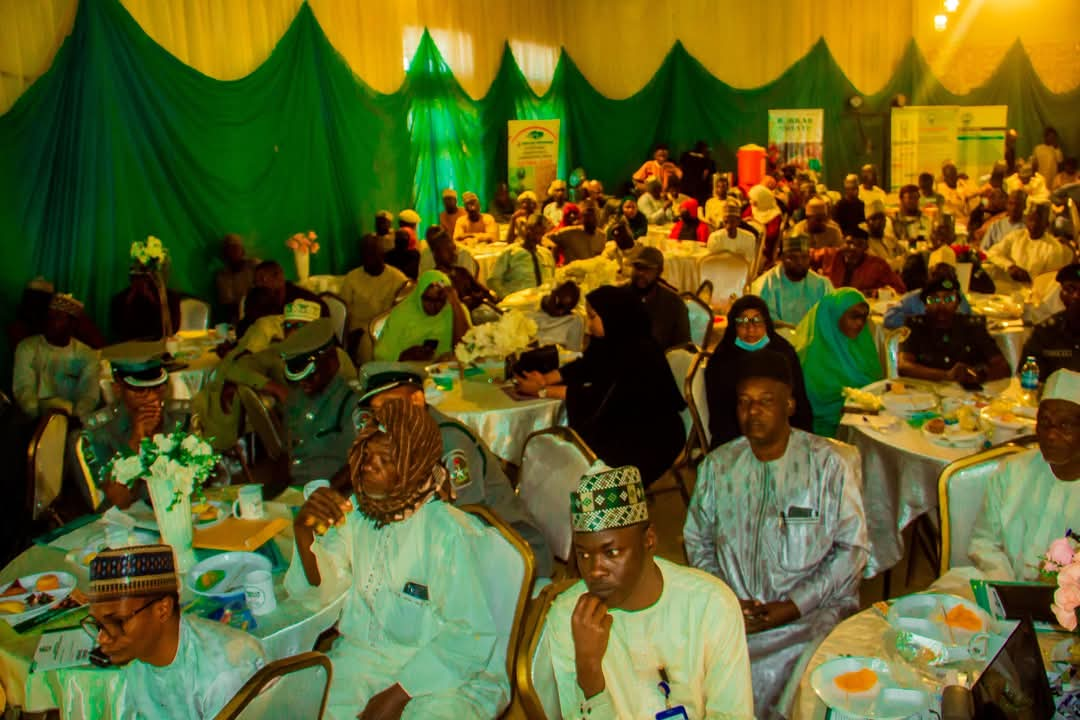Katsina Hosts Capacity Building Workshop to Boost Non-Oil Export Potential

By Zaharaddeen Ishaq Abubakar, Katsina Times, January 14, 2025
In a significant move to strengthen Katsina State’s non-oil export sector, the Katsina State Investment Promotion Agency (KIPA), under the leadership of Governor Malam Dikko Umar Radda, organized a one-day capacity-building workshop. Held at the Munaj Event Center, the event brought together key dignitaries, business professionals, and stakeholders to chart a sustainable path for economic diversification.
The workshop saw the attendance of notable dignitaries, including the Katsina State Commissioner of Police, the Comptroller General of the Nigerian Customs Service (Katsina Command), the Comptroller General of the Nigerian Immigration Service (Katsina Command), business executives, professionals, and representatives from leading regulatory agencies.
The Director General of KIPA, Ibrahim Tukur Jikamshi, in his address, emphasized the importance of empowering local exporters to access global markets. “Katsina State is blessed with abundant agricultural resources, mineral deposits, and textile industries. This program provides practical tools and insights to address challenges such as limited capacity, market access, and financing,” he stated.
Jikamshi also acknowledged the invaluable contributions of stakeholders, including the Nigerian Export Promotion Council, the Nigerian Agricultural Quarantine Services, the Nigerian Customs Service, the Nigerian Export and Import Bank, and the National Agency for Food and Drugs Administration Control (NAFDAC). “Their active participation and commitment have been instrumental in making this program impactful,” he added.
Governor Malam Dikko Umar Radda delivered a keynote address, highlighting his administration's efforts to position Katsina as a leader in the global non-oil export market. “Agriculture remains the backbone of our economic policy. We have invested significantly in supporting farmers through subsidized inputs, irrigation development, and initiatives to boost cotton and livestock value chains,” he said.
The governor further outlined key reforms aimed at fostering economic growth and transparency, including the establishment of the Fiscal Responsibility Commission, the implementation of a contributory pension scheme, and the introduction of merit-based appointments for civil servants. He also detailed infrastructure upgrades, such as road dualization projects, modernized land administration systems, and investments in education and healthcare.
In his address, the Katsina State Commissioner of Police commended the workshop’s focus on economic empowerment, noting its potential to reduce unemployment and enhance security. Similarly, the Comptroller Generals of Customs and Immigration pledged their support in addressing export-related challenges, particularly in streamlining processes for exporters.
The workshop featured presentations from experts and regulatory bodies, including the Standard Organization of Nigeria, the Nigerian Export Promotion Council, and Bridge Shipment Inspection Agency. Topics covered ranged from export market research to accessing global supply chains.
Participants lauded the initiative as transformative for the state's economy. “This workshop has provided us with valuable strategies to expand our export potential,” said a local business executive.
Governor Radda concluded the event by urging stakeholders to collaborate in unlocking Katsina’s export capacity, particularly in agriculture, textiles, and minerals. “Together, we can enhance the volume and value of our exports, creating jobs and stimulating industrial growth,” he said.
The capacity-building workshop underscored the state’s commitment to economic diversification, leveraging its natural and human resources to compete in the global market. The event marked a significant milestone in Katsina’s journey toward achieving sustainable development.
Highlights:
-Attendance of top security officials, regulatory agency heads, and business leaders.
-Focus on agriculture, textiles, and mineral resources as key export sectors.
-Comprehensive reforms to improve governance, transparency, and infrastructure.
-Practical tools and insights provided to empower local exporters.

